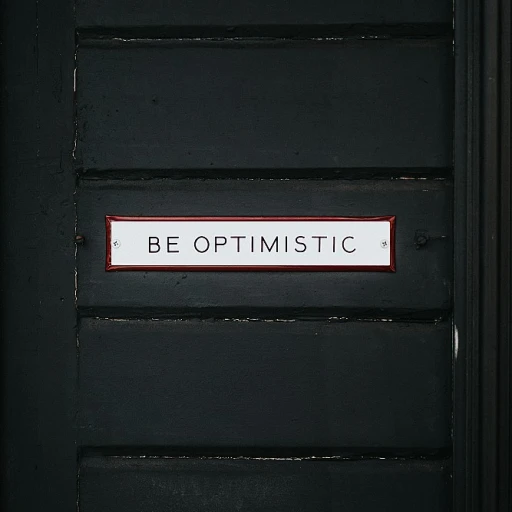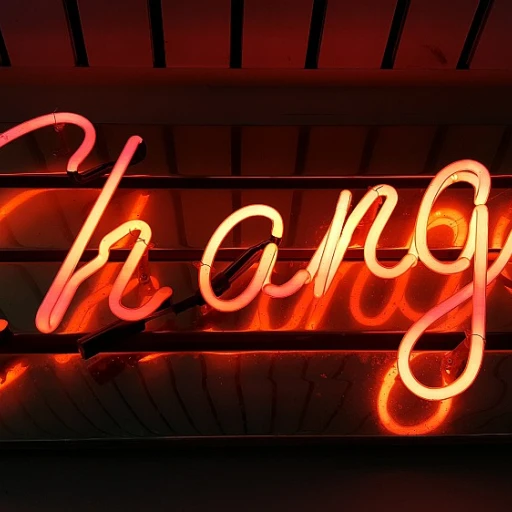Understanding the Dynamics of Work-Life Balance
Defining Balance and Its Importance
Achieving work-life balance is not just a trendy topic; it's a necessary consideration for maintaining a quality life. Balancing career aspirations with personal goals requires constant evaluation and adjustment. This dynamic process involves understanding the function of balance in your life and recognizing that it isn't a static achievement. With each year, your personal and career goals can shift, leading to the need for a reassessment of priorities, whether it's task management at work or fulfilling personal life aspirations.Setting goals is crucial to this balance. In a world where productivity is highly valued, people might feel pressured to stick to their original goals without considering if those goals still align with their evolving identity and life's circumstances. Yet, the fear of perceiving a change as a failure can prevent many from making necessary adjustments.
It's essential to understand that shifting your goal can be a strategic decision to maintain a good equilibrium between your ambitions and your personal needs. Recognizing the time when a change is warranted can be difficult, but not doing so can lead to a misalignment between your life's intentions and actual outcomes, affecting motivation and life satisfaction.
The Role of Behavioral Change in Achieving Balance
Achieving long-term work-life balance involves a continuous process of goal setting and behavior change. It's important to recognize the signs that signal the need for a change in goals. Achieving higher level of balance may require setting new objectives or adjusting the way you pursue existing ones. This can help avoid burnout and allow you to focus on what truly matters, both in your career and personal life.
This idea of balance is also about being the kind of person who can adapt as life evolves. As time changes, so do our needs and desires. Redefining career goals might not only be beneficial but necessary to align your career path with personal growth and new interests, thus helping your nervous system adapt to fewer stress triggers.
Incorporating these behaviors helps you function more effectively in both spheres of life. Drawing from real-life examples of successful goal changes can provide practical insights on forming a more balanced identity, capable of adapting to new circumstances.
Why Changing Goals is Not a Failure
Reevaluating Goals Without Self-Doubt
In our pursuit of work-life balance, it’s common for people to set various goals – whether they are related to career advancement, personal growth, or even achieving a state of emotional well-being. However, it's crucial to understand that changing goals does not equate to failure. On the contrary, it is a good sign of adaptability and growth.
Over time, life circumstances, personal growth, and shifting motivations can naturally lead us to rethink our goals. It’s only natural to question: do my current goals fit the kind of person I am today and who I aim to be? Your identity and values might evolve, prompting a necessary change in direction. This kind of self-reflection is not just beneficial but vital to achieving a harmonious life balance.
When we develop greater self-awareness about our goals and behaviors, we can better align our objectives with our current priorities and desires. Adjusting goals can enhance our ability to focus on tasks that offer the highest level of personal and professional fulfillment. Changing goals might also reflect needed adjustments in career aspirations, facilitating a more sustainable work-life function.
It's important to note that adjusting goals or setting new ones can offer a fresh perspective and renewed motivation. The nervous system, wired for both stability and change, can thrive when we embrace shifts that serve our long-term life balance. Rather than seeing a change as an end, view it as a new beginning and an opportunity to move forward in a more meaningful way.
Goal setting and behavior change are tools that will help structure our time, allowing us to work towards objectives that genuinely resonate with our current state of life. The process of change, although it might seem challenging initially, can lead to remarkable personal growth and satisfaction.
Identifying When It's Time to Change Goals
Recognizing the Right Moments for Goal Adjustments
At times, the inclination to change goals arises naturally, signaling a need for alignment with our evolving identity and priorities. This shift is not necessarily a sign of failure, but rather a strategic decision that reflects personal growth and the pursuit of life balance. Knowing when it's time to adjust your goals is crucial for ensuring that your efforts contribute positively to your career and well-being.
Changes in life circumstances often necessitate a reevaluation of goals. Common catalysts include:
- Significant changes in your personal or professional life, such as a new job or a major life event.
- Realizing a shift in your values that may no longer align with your current objectives.
- Loss of motivation or interest in the goals you've set, indicating that they may not serve their intended purpose anymore.
- Experiencing burnout, stress, or poor work-life balance, which often results from unrealistic or rigid goal setting.
It's important to listen to your instincts and evaluate how your goals impact your behavior and overall well-being. Understanding these signals will help you focus on goals that foster personal and professional growth. Identifying the right time to change goals is not about abandoning responsibilities, but about making adjustments that improve your function and productivity.
This soul-searching can be aided by discussions with trusted peers or mentors who can provide objective insights into whether a goal adjustment is warranted. Remember, setting goals is a dynamic process; being flexible enough to adjust your targets allows you to move forward effectively.
For more insights on how to create a balance that enhances both work and personal life, visit balancing work and life for better productivity.
Strategies for Effectively Changing Goals
Implementing Strategies to Encourage a Seamless Transition
Changing goals can seem daunting, but with the right strategies, people can smoothly navigate this process. An effective approach involves a thorough reevaluation of one's goals and aspirations. This reflection promotes a focus on setting goals that align with one's current life and career objectives. To achieve goals efficiently, it's crucial to ensure they are adaptable, allowing room for growth and change.
Here are several strategies to help in transitioning towards new goals:
- Break Down the Goal: Large career goals or life goals can be overwhelming. By breaking them into smaller tasks, you create manageable steps that build confidence and maintain motivation.
- Deploying Time Management Techniques: Properly managing time is essential to maintain a good work-life balance while pursuing new ambitions. Prioritize tasks that will have the most impact and delegate where possible.
- Seek Support: Sharing your intentions and seeking help from others can increase accountability and provide motivation during times of change. This social reinforcement can bolster will and determination.
- Evaluate and Adapt: Regularly review your progress to identify which strategies work best and where adjustments are needed. This adaptive approach enables a higher level of behavior change and sustained motivation.
- Anchor Identity to Process: Consider what kind of person you aspire to be, and align your new goals with this identity. This alignment can strengthen your commitment and drive positive behavior change over the long term.
These strategies function as a roadmap, offering guidance and support as you set goals that resonate with your current needs. By recalibrating your approach, you position yourself to achieve personal and professional development and move forward effectively in life and work.








